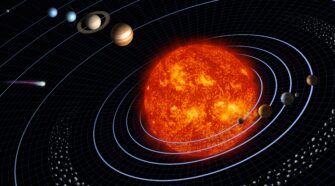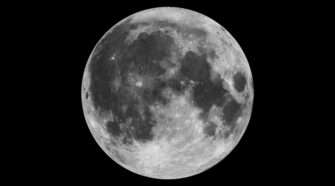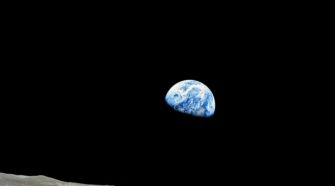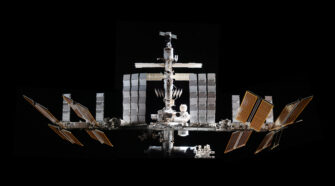Curious Kids
Why does the Earth spin?
“Why does the Earth spin?” —Sara H., age 5, New Paltz, New York A globe was the first thing I ever bought with my own money. I was maybe 5 years old, and I was really excited to take it home. As I quickly discovered, you can spin it in the direction that the earth …
What is below Earth, since space is present in every direction?
“What is below Earth, since space is present in ever direction?” — Purvi, age 17, India If you’ve seen illustrations or models of the solar system, maybe you noticed that all the planets orbit the Sun in more or less the same plane, traveling in the same direction. But what is above and below that …
How can there be ice on the Moon?
“I have a question about ice on the Moon. How is this possible?” — Olaf, age 9, Hillsborough, North Carolina We’re lucky to live on a water world. More than 70% of the Earth’s surface is covered in water. Earth is about 94 million miles from the Sun. That’s within the Goldilocks zone: the place …
Is the Moon drifting away from the Earth?
“Is the Moon getting farther away from the Earth?” — Judah, age 9, Broken Arrow, Oklahoma The Moon is moving 1½ inches (3.8 centimeters) farther away from the Earth every year. Scientists measure the distance to the Moon by bouncing lasers off mirrors placed there by space probes and astronauts. By measuring the amount of …
Why does the Moon look close some nights and far away on others?
“Why does the Moon look close some nights and far away on other nights?” —Gabriel H., age 7, Providence, Rhode Island Some nights the Moon seems really close and bigger than usual. One summer evening when I was a child, I remember being mystified and then startled at a huge round shape slowly creeping up …
How are dark matter and antimatter different?
“What is dark matter and what is antimatter? Are they the same or different?” — Namrata, age 13, Ghaziabad, India Imagine an epic video game with your favorite hero as a character. Another character is a mirror-image twin who shows up occasionally, exploding everything they touch. And, to add an extra level of difficulty, the …
Why isn’t there any sound in space?
“How far can sound travel through space, since it’s so empty? Is there an echo in space?” — Jasmine, age 14, Everson, Washington In space, no one can hear you scream. You may have heard this saying. It’s the tagline from the famous 1979 science fiction movie “Alien.” It’s a scary thought, but is it …
How does the International Space Station stay in low Earth orbit?
“How is the International Space Station able to orbit without burning up?” — Mateo, age 8, New York, New York Flying through Earth’s orbit are thousands of satellites and two operational space stations, including the International Space Station, which weighs as much as 77 elephants. The International Space Station, or ISS, hosts scientists and researchers …
What are solar storms and the solar wind?
“What is meant by solar storm and solar wind?” — Nihal, age 11, Amalapuram, India Every day on Earth, you experience weather. You feel the wind blowing and see clouds move across the sky. Sometimes there are storms where the wind gets really strong, it might rain, or there might be thunder and lightning. Did …
What is the universe expanding into if it’s already infinite?
“What is the universe expanding into if it’s already infinite?” — Mael, age 10, Missoula, Montana When you bake a loaf of bread or a batch of muffins, you put the dough into a pan. As the dough bakes in the oven, it expands into the baking pan. Any chocolate chips or blueberries in the …










